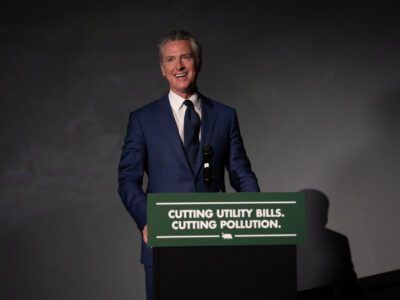Obama Addresses Efficiency Standards
President Obama is pushing for the adoption of better efficiency standards, the Times reports:
Over the last three decades, Congress has demanded stricter efficiency standards on 30 categories of products, as varied as residential air-conditioners and industrial boilers. But successive administrations have failed to write regulations to enforce the laws, even when ordered to by the courts.
In remarks to employees of the Energy Department, and in a presidential memorandum, Mr. Obama said he intended to comply with the laws, starting this year with nine categories of products, including ovens, vending machines, microwave ovens, dishwashers and light bulbs.
The previous lack of progress regarding federal standards was especially regrettable because the states are often preempted from imposing higher standards. As Ann Carlson has explained, in some ways,having no federal standards is better than having weak standards, because at least then the states can regulate:
In 1978 Congress enacted legislation that in large measure preempts states from adopting their own standards if the federal government has adopted a standard for the product at issue. States can apply for a waiver of preemption requirements for products with federal standards, but to date the Department of Energy (“DOE”) has rejected the only waiver request that has been submitted—California’s 2006 petition for a waiver for residential clothes washers. The standards for a waiver of preemption requirements are tough to meet: under the Energy Policy Act a state needs to show that more stringent state regulation is necessary to meet “unusual and compelling State or local energy or water interests” that “are substantially different in nature or magnitude than those prevailing in the United States generally.” States must also seek a waiver to regulate products that lack federal standards, but generally speaking the DOE has granted such waivers liberally. Essentially, then, we have federal standards for major appliances (central air conditioning, heat pumps, furnaces, boilers, refrigerators, freezers, washers, dryers ovens dishwashers, etc.) and state standards for less significant appliances (hot tubs, pool pumps, compact audio products, and DVD players, to name a few).






Reader Comments